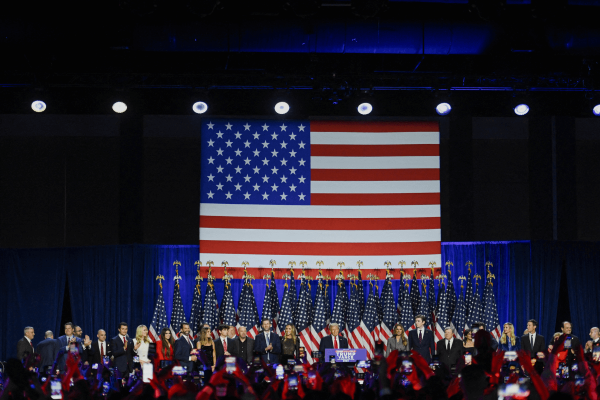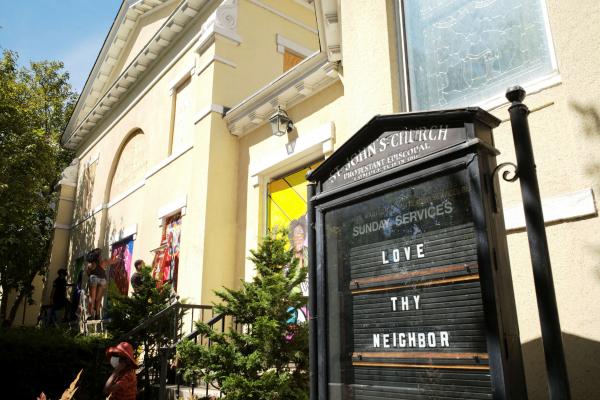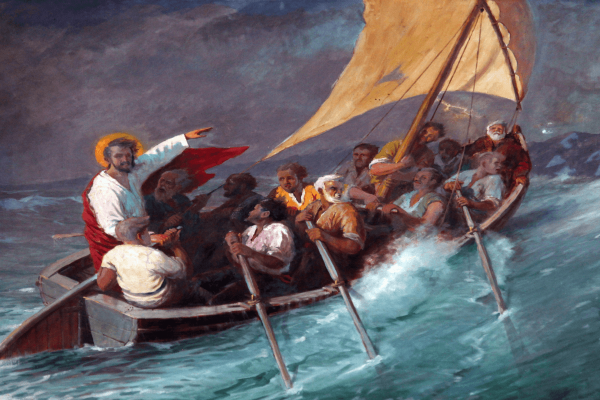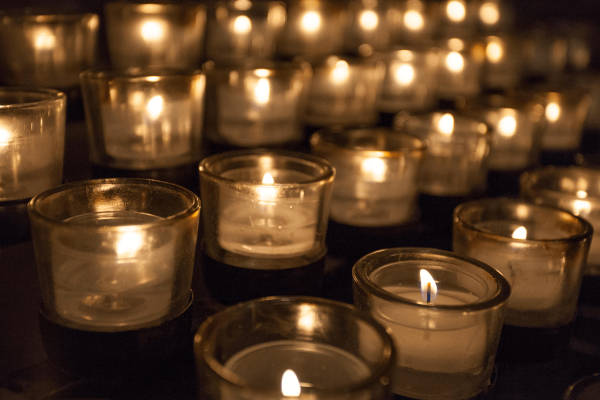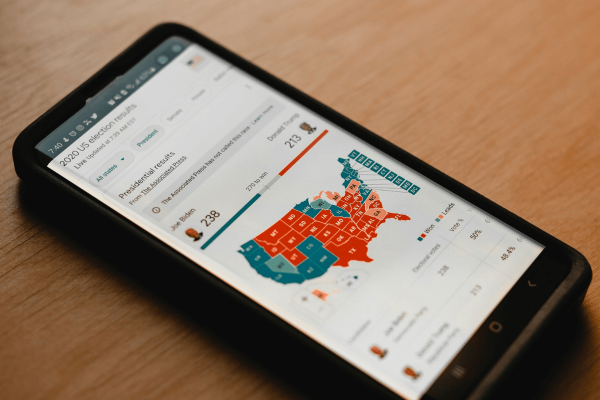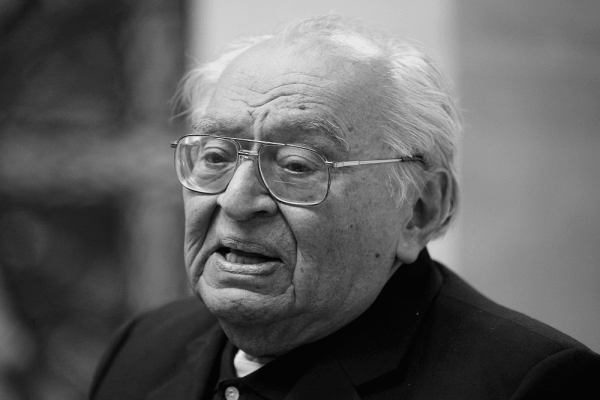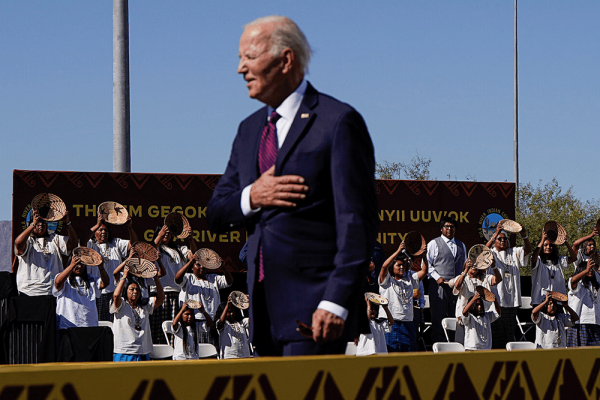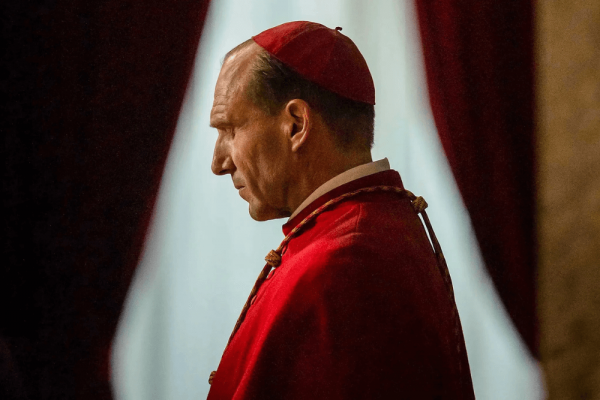President-elect Trump, according to the Associated Press, has won the White House. He won the election in part by courting conservative religious communities — and appealing to their anxieties — on the campaign trail. His policy agenda will likely be shaped by these groups, influencing the White House on a range of issues from education to reproductive rights.
In the summer of 2020, I was scrolling through Twitter (now called X) when I saw a video of young protesters gathering near the house of the Chicago Mayor at that time, Lori Lightfoot. They were protesting her heel turn away from the progressive policies on which she had run. In the background of the video the doors of my church, Grace Church of Logan Square, were firmly closed. To have our doors closed to brave and bold young people fighting for justice was not the witness that my church wanted to bear. So, I called several of my leaders and our partner congregation, St. Luke’s Lutheran, and our protest support group was born.
In the synoptic gospels, when the currents swelled and wind howled, Jesus woke up during the storm that threatened the lives of his disciples. Although the disciples questioned his authority and were terribly afraid, Jesus woke from his sleep and settled the waves with the sound of his voice. And even though Jesus scolded them, the disciples were safe and the boat sailed on. As we think about the pending uncertainty of the 2024 election, there’s something reassuring in that story for me: God was present in the storm.
According to recent polling, 7 out of 10 Americans are feeling anxious about the 2024 presidential election. And as Election Day draws near, many churches and faith groups are trying to help alleviate some of that anxiety by opening their doors — and virtual spaces — for prayer.
Many of us have been working hard for months to shore up the freedom to vote for all citizens. We have knocked on doors, made calls to strangers, signed petitions, watched the news, created content, and equipped leaders on civic engagement strategies, hoping we will get the opportunity to rest after Election Day. For months, we have given our energy, sweat, and tears to ensure our communities are informed and equipped for this election. It seems like it will never end. But here’s the good part: We don’t have to wait until it’s over to get some rest.
You might think that the people who most fundamentally believe in humanity’s fallen, sinful nature — Calvinists — would also be the most reticent to concentrate power in a small sect of humans.
But often, as Kristin Kobes Du Mez told me in our interview, Calvinists are one of the Christian groups on the front lines of movements where power is concentrated in singular leaders, singular expressions of Christianity, or singular heads-of-households. Kobes Du Mez, a historian at Calvin University , finds this baffling, but can’t deny that the movements are linked. As she sees it, Christian patriarchy, Christian nationalism, and anti-democracy movements are connected by their approach to power.
In a new documentary short, For Our Daughters, Kobes Du Mez and director Carl Byker address the connection of these movements through the stories of sexual abuse victim-advocates: Rachael Denhollander, Cait West, Christa Brown, and others tell the stories of how sexual abuse was allowed, ignored, or covered-up in their communities while analyzing what Christianity has to say about it.
Gutierrez had systematized a living, collaborative, community movement in his ground-breaking work, A Theology of Liberation, published in 1971 in Spanish and two years later in English. Over decades, clerics and community leaders, men and women, across cultures, identities, and denominations, all had contributed, in the smallest way, to the construction of this new way of thinking about — and acting toward — God and God’s glorious creation.
“This to me is one of the most consequential things I’ve ever had an opportunity to do in my whole career,” Biden said in his apology at an outdoor football and track field in Laveen Village, Arizona, near Phoenix. “It’s a sin on our soul. ... I formally apologize.”
Directed by Oscar-winner Edward Berger (All Quiet on the Western Front), Conclave begins when the pope dies unexpectedly. To elect the next pontiff, the College of Cardinals convenes in the Vatican, entering total seclusion from the outside world until a majority vote can be reached. But if God is working through the cardinals, so too is something darker: ugly hunger for power and bitter ideological divide.
“Fascist” isn’t a word I ever use lightly. It’s not a word that resonates with most Americans, and I’ve worried using that word will only further polarize our deeply divided nation. But Trump’s escalating rhetoric, especially over the past few months, calls for moral clarity: It is time to state emphatically that Trump’s rhetoric is increasingly and dangerously fascist. Since we know that this kind of language creates a permission structure to justify and incite violence, Christians of all stripes must condemn language that crosses that line.
